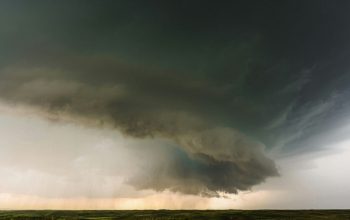It seems like we're approaching the end of an era.
About ten years at a San Diego ComicCon I caught the premiere of "Arrow," a new D.C. Comics adaptation of the Green Arrow meant to fill the gap left by the conclusion of "Smallville"
Oddly enough, this show wasn't a spin-off of "Smallville," which heavily featured Justin Hartley as the emerald archer in its later seasons. "Arrow," starring Stephen Amell, was its own thing. A grittier and more grounded adaptation bereft of the more fantastical elements that accompany comic book heroics. As anybody that has followed the CW's programming block in the last decade knows, that clearly did not last.
Things started to change in the second season of "Arrow." Less corporate drama and mentally ill villains with a grudge, more ninjas and metahumans. Then we were introduced to Barry Allen, played by Grant Gustin, who would go on to star in the first official Arrowverse spin-off, "The Flash."
From there the floodgates opened. "Supergirl," which originally started as a separate show on CBS, moved over to the CW after its first season and introduced the concept of the multiverse to the general audiences. "DC's Legends of Tomorrow" finished out the core of the programming block, becoming something of a haven for supporting characters from the other shows to spread their wings.
While Warner Brothers struggled to keep up with Marvel Studios on the movie screen, Greg Berlanti successfully spearheaded the creation of a connected television universe, adding even more shows like "Black Lighting" and "Batwoman" into the mix.
In January of 2020, these efforts cumulated into an adaptation of the seminal storyline, "Crisis on Infinite Earths," which, to be honest, wasn't great, but making a crossover storyline from six different television shows on what is clearly a shoestring budget is still a laudable achievement.
That said, it seems pretty clear that the Arrowverse's best days are now behind it. Our heroes may have stopped their fictional universe from collapsing on itself, but they can't stop the inevitable end of their own shows.
"Arrow" effectively ended during the crossover, with the remainder of its eighth and final season being dedicated to a backdoor pilot for a spin-off series that never materialized. "Black Lightning" and "Supergirl" both wrapped up their runs last year. And now it has been announced that both "DC's Legends of Tomorrow" and "Batwoman" are also on the chopping block.
This leaves "The Flash" as the last of the core shows still running, though reception to recent seasons makes that a questionable decision as well.
Beyond that, "Supergirl" spin-off "Superman & Lois" continues to do well, as does "Stargirl," though neither show really leans into the shared universe concept of its predecessors. There's also apparently another apparently another Batman-adjacent show in the works, but who knows if or how that will play out. It doesn't look like Berlanti is done pitching shows yet, but it seems unlikely that his shared universe will ever get back to its heyday. Still, I never would have dreamed that the "Arrow" premiere I saw so many years ago would lead to more than 700 episodes of content over the span of a decade.
Who knows what's coming next?
Travis Fischer is a news writer for Mid-America Publishing and assumes that, whatever happens in the future, Matt Ryan will still be playing Constantine.







